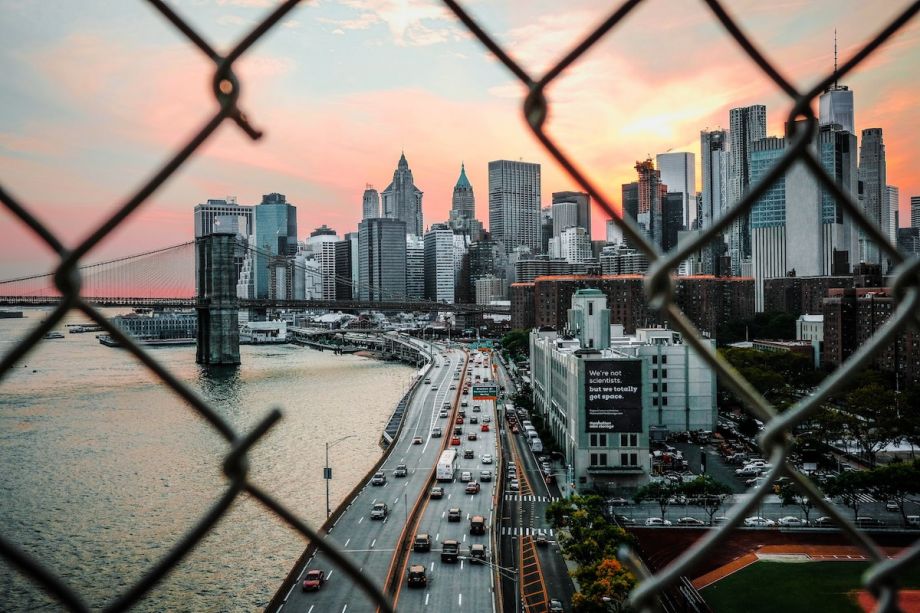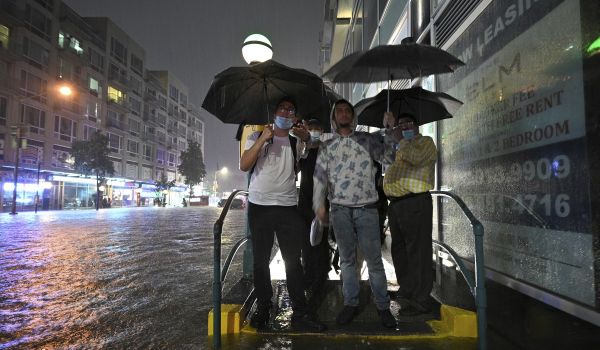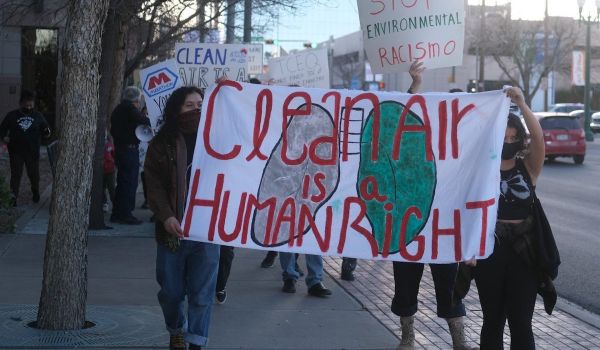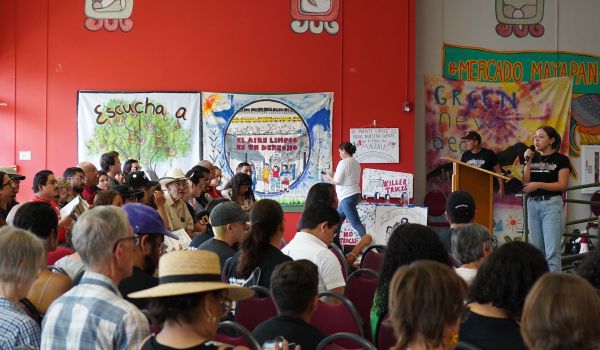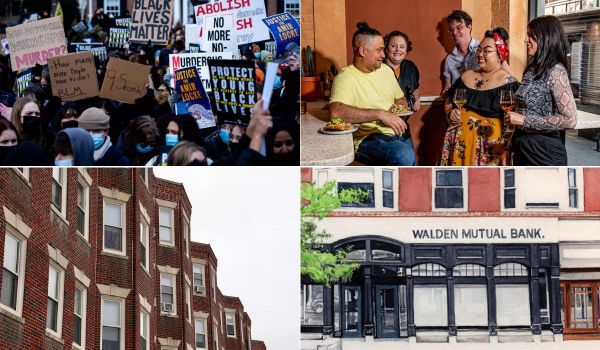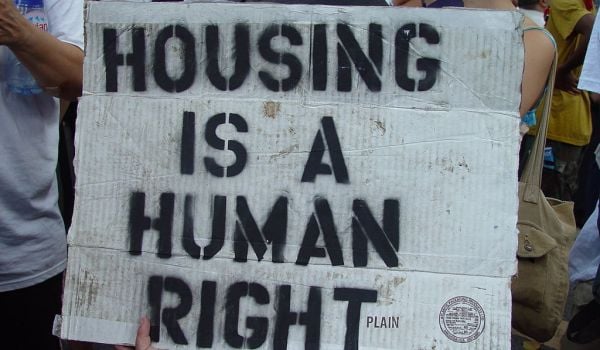Welcome to The Weekly Wrap, our round up of stories that explain the problems oppressing people in cities and elevate the solutions bringing us closer to economic, environmental and social justice.
Have news or an event that should be in The Weekly Wrap? Email us details at wrapped@nextcity.org — and it might just get included in next week’s edition!
New York City’s Congestion Pricing Plan Will Provide New Funds For Its Public Transit
The city’s long-delayed congestion pricing program is inching closer to becoming a reality after the Federal Highway Administration approved a report on mitigating unintended consequences of the law, the New York Times reports. The plan was approved in 2019 and was planned to be rolled out by 2021. But it faced delays due to former Governor Andrew Cuomo’s resignation, according to the Times.
Once congestion pricing begins, it would place a toll on vehicles entering lower Manhattan in an effort to reduce traffic and pollution and raise funds for the subway. According to the MTA, prior to COVID, 700,000 vehicles entered Manhattan’s central business district each day. Eighty percent of congestion pricing toll revenue would go to maintaining the city’s subways, with the rest split between the Long Island Rail Road and Metro-North Railroad. But there are concerns that trucks attempting to evade the toll could divert to the already crowded Cross Bronx Expressway, which has been linked to the Bronx’s high asthma rates.
NYCHA Appoints Board Members To Its Preservation Trust
The New York City Housing Authority appointed board members to its Preservation Trust, a new entity that will issue bonds to borrow billions of dollars for repairs, City Limits reports. The trust will initially take over 25,000 units in the public housing system with the goal of eventually converting 110,000 to trust management. It will convert the funding mechanism for those units from Section 9, the typical funding mechanism for public housing, to project-based Section 8, which allows for more money from the government. Some tenants have likened the shift to privatization.
The board includes three city housing officials, two NYCHA tenant association presidents. The vice president of the nonprofit Enterprise Community Partners will be a board member at large.
El Pasoans Reject Climate Charter
Voters in El Paso rejected a ballot measure to address climate change, El Paso Matters reports. Proposition K would have approved a climate charter mandating that the city establish a climate director, track climate emissions and fund climate jobs among other measures. Business groups and an energy lobby poured $1 million into web and TV advertisements opposing the measure, according to El Paso Matters. The outlet reported that average temperatures in El Paso climbed 5 degrees Fahrenheit since 1970.
Artists Release Queens Museum Report
Artists who participated in a 2021 slate of programming at the Queens Museum dubbed “Year of Uncertainty” criticized some of the museum’s practices, according to Hyperallergic, which interviewed some of the artists. The anonymous “Arts Union” released a report on the criticisms, which include rushed timelines, allegations of retaliation and a mishandled sexual harassment reporting process. The Queens Museum, located in Flushing Meadows Corona Park, is known for its community-oriented projects.
And digital creatives are building on the momentum of the Writer’s Guild of America strike by calling for increased compensation from big tech companies and more transparency around accounts being deleted, The Information reports.
FDIC Understaffing Contributed To Bank Failures
The Federal Deposit Insurance Corporation, the government entity that oversees the country’s banking system, has been understaffed due to a lack of competitive wages, according to the New York Times. The FDIC’s pay structure shows that its lowest paid jobs start at $23,099 and salaries for high-level roles max out at $229,780.
The number of hours dedicated to supervising Silicon Valley Bank dropped 40 percent between 2017 and 2020, and the FDIC released a report pointing to its own staffing shortages as one of the reasons for the failure of Signature Bank.
Compiled by Deonna Anderson
MORE NEWS
-
The cost for making Baltimore more accessible for people with disabilities? $650 million, according to city documents. The Baltimore Banner (paywall)
-
A report released on Wednesday shows that inflation slowed for the 10th straight month in April. This trend can be seen most in the grocery store. But concurrently, rents and some car-related costs are climbing. The New York Times
-
California’s taskforce on reparations voted to approve recommendations for how the state could compensate its Black residents and repair harm caused by discriminatory practices. Gov. Gavin Newsom responded to the recommendations, noting that they are “a milestone in our bipartisan effort to advance justice and promote healing.” (The Guardian and CNN)
EVENTS
-
The Schumacher Center for New Economic is having a virtual panel discussion on this theme: “Activating Stagnant Capital to Catalyze Local Transformation.” May 18 at 2 p.m. Eastern. Learn more and register here.
-
If you’re in the New York City area, Creative Time is hosting a daylong convening on Governors Island. The day’s events will “center on the possibilities and limitations of achieving abolition through the law.” May 20, beginning at 10 a.m. Eastern. Learn more and register here.
-
Plus, check out Next City’s upcoming events here.
This article is part of The Weekly Wrap, a newsletter rounding up stories that explain the problems oppressing people in cities and elevate the solutions bringing us closer to economic, environmental and social justice. Click here to subscribe to The Weekly Wrap newsletter.

Roshan Abraham is Next City's housing correspondent and a former Equitable Cities fellow. He is based in Queens. Follow him on Twitter at @roshantone.



